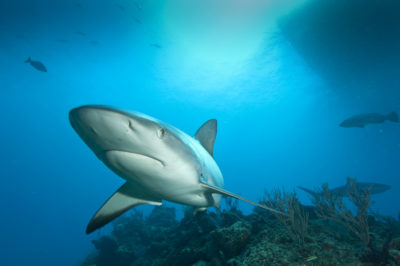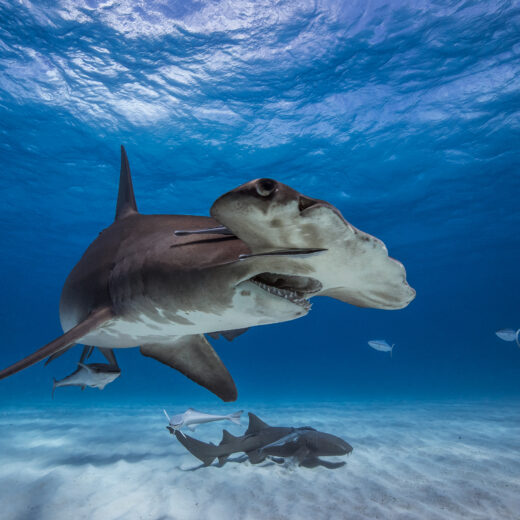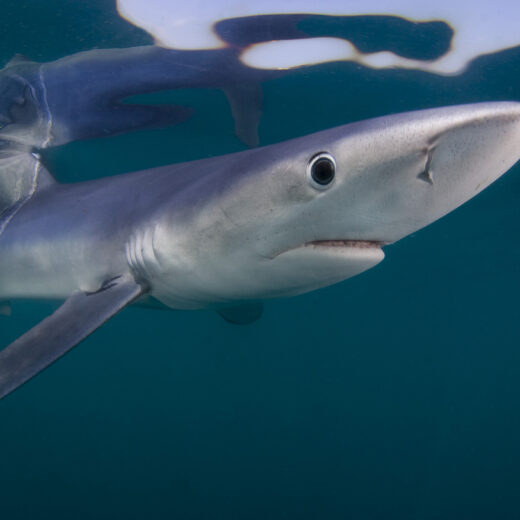
BEIJING, China (August 5, 2014) – Prices and sales of shark fin are falling in China by 50-70% according to a new report released today by WildAid. “Evidence of Declines in Shark Fin Demand, China” compiles public opinion surveys, surveys from shark fin vendors and traders in the markets of Guangzhou, China (the current center of China’s shark fin trade) and surveys of shark fin price data from Indonesian shark fishermen, as well trade statistics and media reports.
“Demand reduction can be very effective” says Peter Knights, Executive Director of WildAid. “The more people learn about the consequences of eating shark fin soup, the less they want to participate in the trade. Government bans on shark fin at state banquets in China including Hong Kong SAR also helped send the right message and this could be a model to address issues, such as ivory.”
The report documents:
82% decline in sales reported by shark fin vendors in Guangzhou, China and a decrease in prices (47% retail and 57% wholesale) over the past two years.
85% of Chinese consumers surveyed online said they gave up shark fin soup within the past 3 years. 2/3 of these respondents cited awareness campaigns, 28.2% cited the government banquet ban as a reason.
24 airlines, three shipping lines, and five hotel groups have officially banned shark fin from their operations
Of 20 Beijing restaurant representatives interviewed in a study to be published in the journal Conservation and Society, 19 reported a significant decline in shark fin consumption. All agreed that WildAid PSAs featuring Yao Ming had “definitely raised awareness among customers.”
80% decline in prices paid to fishermen from 2007 levels in Tanjung Luar and Lombok in Indonesia and a decline of 19% since 2002-3 in Central Maluku, Southeastern Maluku and East Nusa Tenggara.
An estimated 100 million sharks are killed yearly with up to 73 million sharks used for their fins, primarily to supply the market in Mainland China. Some shark populations have declined by up to 98% in the last 15 years and nearly one-third of pelagic shark species are considered threatened by the International Union for the Conservation of Nature (IUCN).
In the Guangzhou markets, assumed to be the new center of China’s shark fin trade, wholesale traders now complain of dwindling sales and falling prices. Retailers who were selling medium-sized shark fins for as much as US$642 per kilogram are now only able to charge half as much. One Guangzhou wholesaler commented that “shark fin is a dying business” and another is quoted saying that “Yao Ming’s commercial impact single-handedly smashed my business,” in reference to WildAid’s ongoing multimedia public awareness campaigns.
WildAid creates high-impact, culturally sensitive media campaigns with celebrity ambassadors, such as Yao Ming, Jackie Chan and David Beckham. With extensive state and private media partnerships, WildAid secures pro-bono placement for these messages, amounting to US$164 million in 2013 in China alone.
Another finding detailed in the report is the increasing public suspicion of fake shark fin in the market. Four of the
trader/vendors interviewed in Guangzhou mentioned the fake product as a reason for the decline in their sales, and 43% of the respondents of our consumer survey said they thought that much of the shark fin in the market is artificial.
PSA :30 – Yao Ming: Shark Fin Soup (YouTube.com)
Stay in touch and get the latest WildAid updates.
SIGN UP


